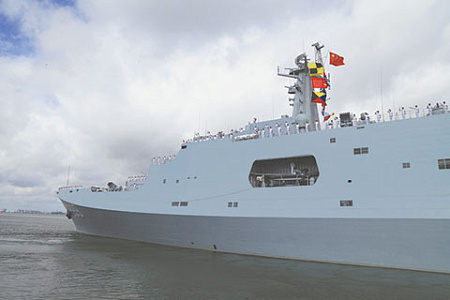
Beijing has strongly condemned American airstrikes on Iran’s nuclear facilities, with the Chinese Foreign Ministry labeling the action a violation of international law fraught with severe consequences. Following the attacks, which Chinese President Xi Jinping had earlier warned against by urging de-escalation, the state-run Global Times newspaper declared the conflict has now entered a new, trilateral phase involving the United States. This raises a critical question about Beijing’s role: can it offer Tehran anything more than rhetorical support? So far, China’s most tangible response has been the deployment of naval vessels to the Persian Gulf, equipped to monitor the military activities of the conflicting parties.
China’s reaction has been carefully calibrated across its media platforms. For international audiences, the state broadcaster CGTN questioned whether America is repeating its past mistakes in Iraq, warning that military interventions in the Middle East historically lead to prolonged conflict and instability. For domestic consumption, however, Chinese news services have focused primarily on the successful evacuation of approximately 1,000 Chinese citizens from Iran, a move designed to project an image of a government capably protecting its people. This dual narrative highlights Beijing’s cautious management of information amid a rapidly evolving crisis.
Despite state censorship, some Chinese online commentators have noted the perceived weakness of Iran’s military and security services. More candidly, experts acknowledge the significant constraints on Beijing’s ability to aid Tehran. Zhu Zhaoyi, an expert at the University of Business and Economics in Beijing, stated in a post that “China cannot give Iran unconditional protection” or risk a direct military confrontation with the United States and Israel. According to Zhu, China’s support is realistically limited to exercising diplomatic pressure through its permanent seat on the UN Security Council.
Underlying Beijing’s cautious posture are its significant economic interests. As the primary consumer of Iranian oil, China’s energy supply is vulnerable to any disruption in the Strait of Hormuz, a likely scenario if Iran-backed forces like the Houthis in Yemen retaliate against shipping. Furthermore, numerous Chinese companies and joint ventures operating within Iran face immense risk and operational disruption from the ongoing bombardment, jeopardizing years of investment in the region.
The American military action directly challenges the prestige and influence Beijing has cultivated in the Middle East. China’s regional standing soared in 2023 after it successfully mediated the restoration of diplomatic ties between rivals Iran and Saudi Arabia, positioning itself as a powerful economic and diplomatic alternative to the United States. However, the bombing campaign has starkly revealed the limits of China’s power. In a direct military crisis, Beijing’s ability to counter American force appears minimal, rendering the deployment of surveillance ships a largely symbolic gesture.
Ultimately, Chinese strategists must now consider the broader implications of Washington’s assertiveness, particularly concerning Taiwan. While the U.S. has long maintained a policy of “strategic ambiguity” on whether it would defend the island, its decisive action against Iran could be interpreted as a precedent. For Beijing, this raises the unsettling possibility that Washington may be more willing to use military force to protect its interests and allies than previously calculated, prompting a potential reassessment of its own strategic plans.
